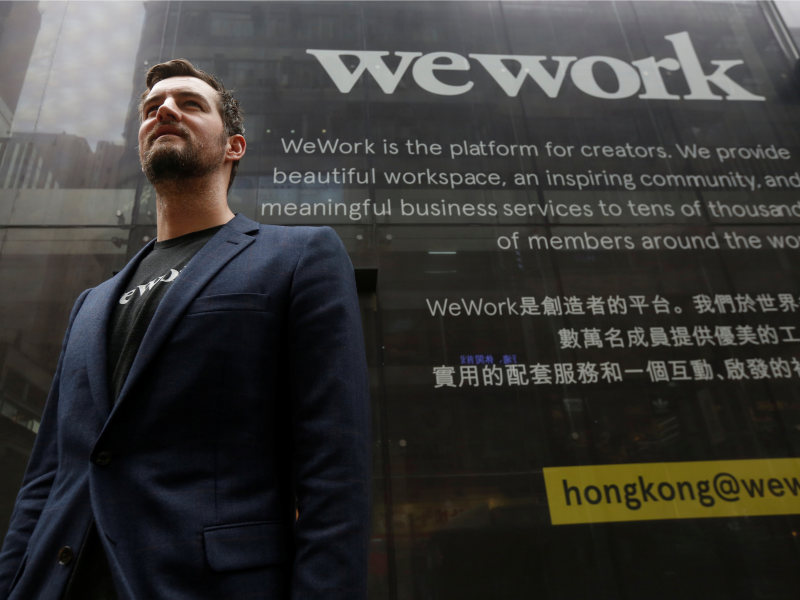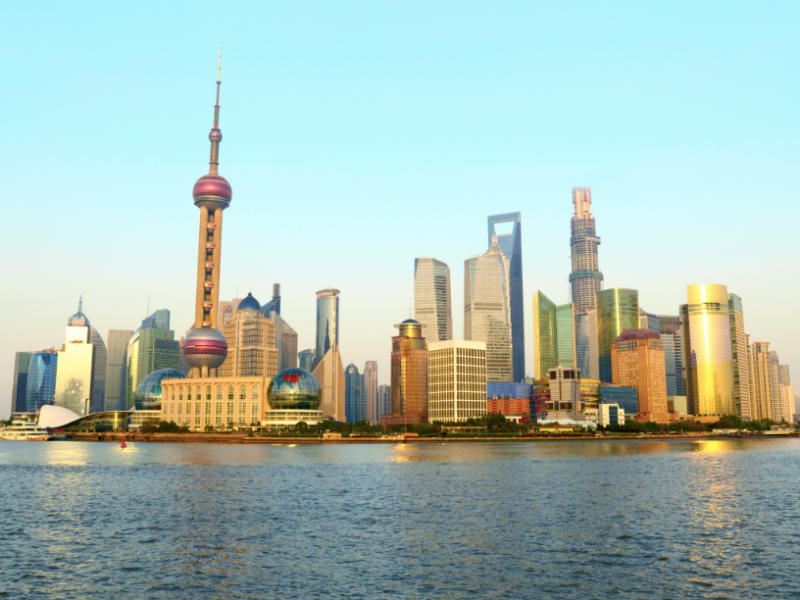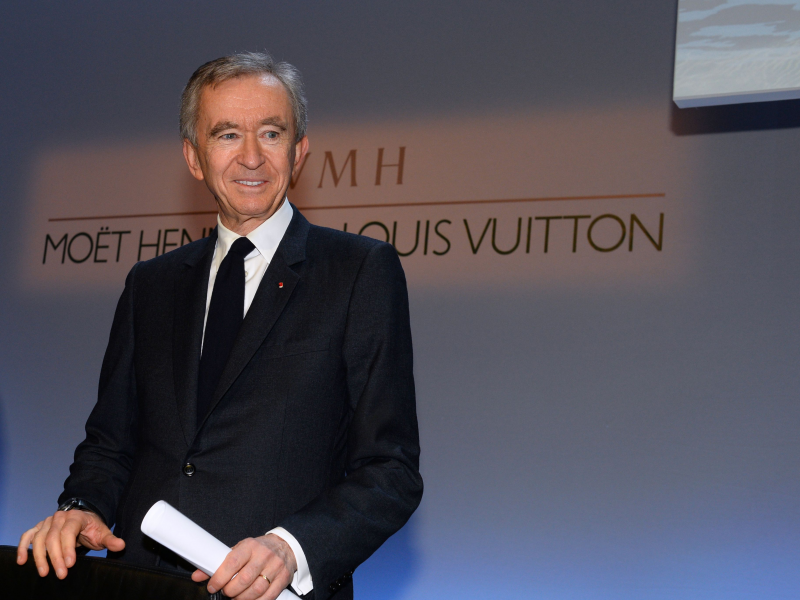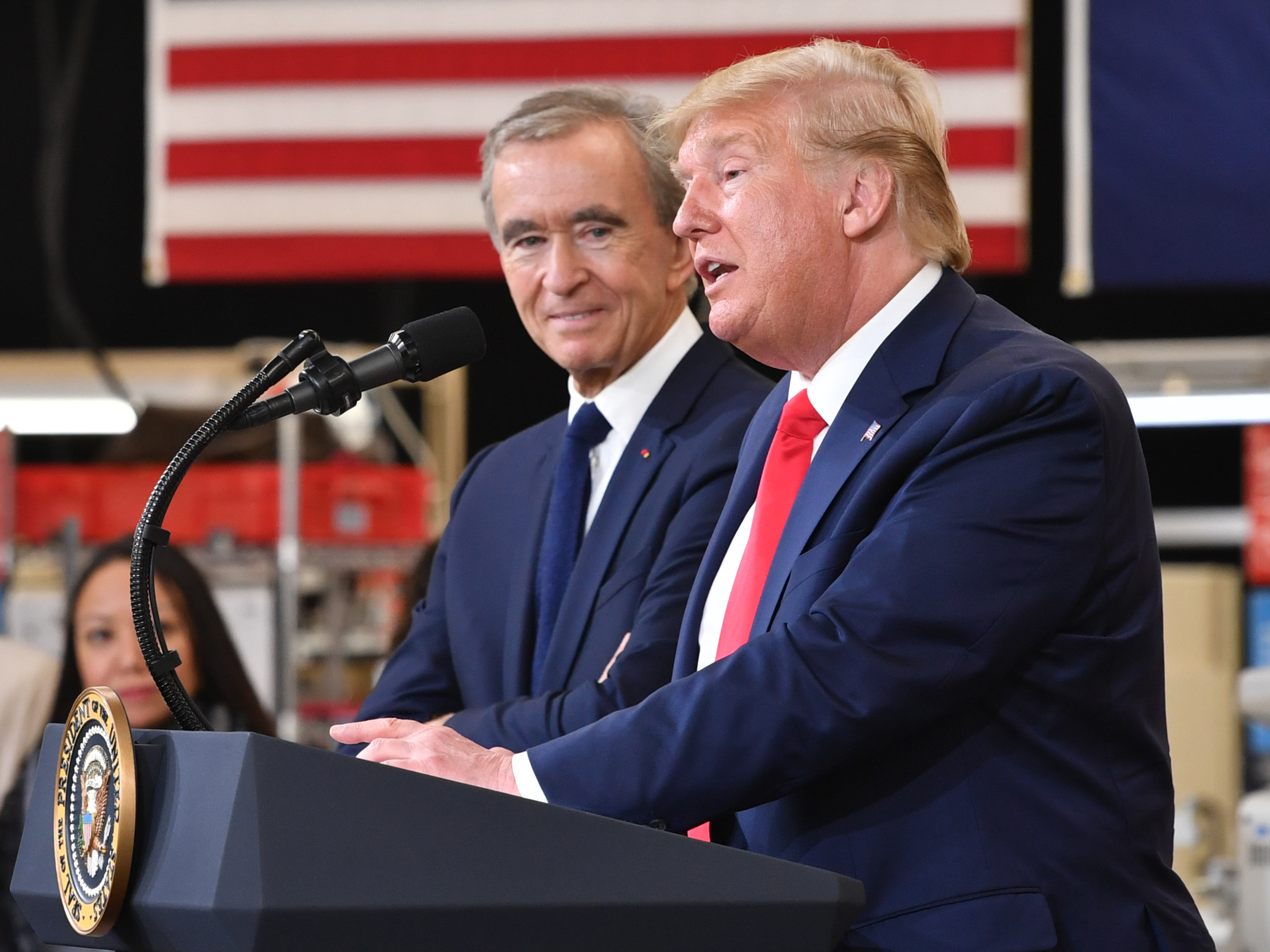- 2019 was a good year to be a billionaire: The net worths of the world’s 500 richest people grew 25%, according to Bloomberg.
- But it wasn’t all good news. While billionaires in France saw their collective net worths soar, the opposite happened in China. And billionaires in the US have been increasingly forced to contend with the prospect of a wealth tax.
- The public is also increasingly holding billionaires accountable for how they make and spend their fortunes.
- As we approach the end of the year – and the decade – Business Insider took a look back at how things have changed for billionaires over the course of 2019.
- Visit Business Insider’s homepage for more stories.
Depending on where you live and how you made your fortune, 2019 was either a very good year to be a billionaire – or a very bad one.
French billionaires, for example, enjoyed surges in their net worths this year, while months of mass protests and political unrest sunk those of Hong Kong’s billionaires. Meanwhile, ultra-wealthy people who made their fortunes in controversial ways – no matter where they lived – were forced to deal with public reckonings amid growing income inequality.
Keep reading to learn how life has changed for billionaires in 2019.
1. Billionaires’ ranks are shrinking.

Forbes removed 247 people from its Billionaires List between 2018 and 2019.
Several of those people, including the founders of WeWork and SmileDirectClub, suddenly lost their billionaire status in 2019 when their IPOs didn't go as planned, Business Insider previously reported. Others, such as the founders of Forever 21 and RyanAir, saw their net worths decline steadily over multiple years amid falling sales.
2. But a few standout names were inducted into the 3-comma club this year.

Social media and makeup mogul Kylie Jenner, then 21, made headlines when Forbes declared her "the world's youngest self-made billionaire" in March. Jenner, who turned 22 in August, has built up a $1.2 billion cosmetics empire, starred alongside her family in "Keeping Up with the Kardashians" as well as in her own spin-off show "Life of Kylie," started a clothing line with sister Kendall, and made millions promoting products on Instagram.
Musician Jay-Z (net worth: $1 billion as of June 2019), Jeff Bezos' ex-wife MacKenzie Bezos, David Koch's widow Julia Flesher Koch ($42.7 billion), Proactiv founders Katie Rodan and Kathy Fields ($1.5 billion each as of March 2019), Zoom CEO Eric Yuan ($3 billion as of April 2019), and Slack CEO Stewart Butterfield ($1.6 billion as of June 2019) also became billionaires this year, Business Insider previously reported.
3. 2019 was the year of the billionaire presidential candidate.

Three billionaires - former hedge fund manager Tom Steyer, former New York City Mayor Michael Bloomberg, and President Donald Trump - have thrown their hats in the ring for 2020.
Ultra-wealthy people seeking public office is a phenomenon as old as the country itself; one of the richest presidents in American history before Trump was George Washington, Business Insider previously reported. Washington's fortune at the time of his presidency was worth the equivalent of $525 million in 2017 dollars, compared to Trump's $3 billion net worth today.
Bloomberg, meanwhile, is 17 times richer than Trump, with a net worth of $55.9 billion.
4. Public perception has increasingly shifted out of billionaires' favor.

Presidential candidate and Massachusetts Sen. Elizabeth Warren has been outspoken with her criticism of America's wealthiest people. Warren sells "billionaire tears" mugs and hosts a wealth tax calculator with thinly veiled swipes at Bill Gates and Leon Cooperman on her campaign website. And her tough rhetoric has instilled fear in many billionaires, former Goldman Sachs partner and hedge-fund manager Michael Novogratz told Bloomberg.
"Ninety-seven percent of the people I know in my world are really, really fearful of her," Novogratz said. "They don't like her, they're worried about her, they think she's anti-rich ... It's a little carried away."
5. Billionaires have been increasingly forced to contend with the prospect of a wealth tax in the US.

Arguably the most frequently discussed part of Sen. Warren's presidential candidacy platform is her wealth tax proposal. A wealth tax would make ultra-wealthy Americans pay the federal government a small percentage of their net worth each year. And she's not the only presidential candidate behind the idea: In September, Bernie Sanders unveiled an even more aggressive wealth tax plan.
That concept isn't supported only by those who have an ax to grind with the ultra-wealthy. Billionaires and multimillionaires like Mark Cuban, Marc Benioff, Ray Dalio, and Abigail Disney have also publicly asked the government to raise their taxes. And the idea has support among Americans: An Insider poll shows that more than half of Americans support Warren's wealth tax proposal.
These calls for a tax on the ultra-wealthy come as the divide between America's rich and poor continues to expand. In 2018, income inequality in the US reached its highest level in more than half a century. The ultra-wealthy actually paid a smaller portion of their income in taxes than average Americans in 2018, an analysis of tax data by the University of California at Berkeley's Emmanuel Saez and Gabriel Zucman found.
Proponents of a wealth tax say the measure could reduce inequality by funding education reform, health care, and infrastructure reforms, but experts told Business Insider in September that enforcement issues and constitutional challenges make the chances of implementing such a tax before 2025 essentially zero.
6. 2019 wasn't the best year to be a billionaire in China.

The American and French fortunes on the Bloomberg Billionaires Index outpaced Chinese ones in the first half of 2019, Business Insider previously reported, growing at rates of 35% and 17% respectively. The collective net worths of Chinese billionaires, meanwhile, grew only 15%.
There were some outliers, however. The net worth of the world's largest pork producer, New HopeGroup chairman Liu Yonghao, has nearly doubled, reaching $11 billion in the past 12 months, Business Insider previously reported, while the Muyuan Foodstuff Co. chairman Qin Yinglin had the fastest-growing fortune on the Bloomberg Billionaires Index.
7. The fortunes of Hong Kong's billionaires also took a hit in 2019.

Perhaps no group of billionaires has suffered more in 2019 than those in Hong Kong. Hong Kong's wealthiest residents often enjoy the greatest profits when the markets are bullish, but experience the steepest losses during market routs, Capgemini's Deputy Head of the Global Financial Services Market Intelligence Strategic Analysis Group Chirag Thakral told Business Insider.
Months of mass protests and civil unrest wiped $15 billion off the net worths of Hong Kong's 10 richest people between July and August. The two members of the Kwok family, Hong Kong's richest family and the owners of the city's largest real-estate developer, saw their net worths drop over a billion dollars each.
Meanwhile, "Superman" Li Ka-shing's fortune fell $3 billion. On August 15, Li took out advertisements in local Hong Kong newspapers asking residents to "stop anger and violence in the name of love," The South China Morning Post reported.
8. But on the other side of the globe, it was actually a pretty good time to be a billionaire: North America was the only region in the world to gain more billionaires in 2018, the most recent year for which data is currently available.

The Americas ended 2018 with 892 billionaires, compared to 884 at the end of 2017, according to research firm Wealth-X. Most of the gains took place in the United States thanks to Wall Street's strong performance at the end of the year, Wealth-X reported.
9. The top tier of the 1% is more gender diverse than it used to be.

In 2019, two new women made appearances in the top 30 of Bloomberg's Billionaire Index: MacKenzie Bezos and Julia Flesher Koch.
Bezos became one of the richest women in the world after her divorce from Amazon CEO Jeff Bezos was finalized in July, Business Insider previously reported. Bezos retained 25% of the couple's Amazon shares after the split, giving her a net worth of $35.8 billion, Bloomberg estimates.
Koch took the No. 10 spot on Bloomberg's Billionaire Index following the death of her husband David Koch in August. The stake in industrial giant Koch Industries she inherited from her husband gives her a net worth of $61.7 billion, Bloomberg estimates.
10. The top tier is also richer than it used to be.

The world's 500 richest people saw their fortunes grow 25% in 2019, Bloomberg's Tom Metcalf and Jack Witzig reported. Their collective fortune now amounts to $5.9 trillion, according to the Bloomberg Billionaires Index.
11. One thing hasn't changed: Only two people have appeared on the Forbes 400 every year since it was first issued in 1982.

Only Philip Anschutz and William Herbert Hunt have been on Forbes' ranking of the 400 richest Americans every year since 1982, Business Insider's Katie Warren previously reported.
Anschutz made his fortune in oil, railroads, telecom, real estate, and entertainment, while Hunt's wealth derives from the oil industry. In 1982, Anschutz was ranked the seventh-richest American with an estimated net worth of "over $1 billion," while Hunt was ranked the 10th-richest with a net worth "in excess of $1 billion." In 2019, Anschutz is ranked the 41st-richest American on the list with a net worth of $11.5 billion, while Hunt is in 333rd place with a net worth of $2.6 billion.
12. No billionaire saw greater personal growth to his fortune in 2019 than French luxury magnate Bernard Arnault, who started the year with a net worth of $66 billion and ended it with nearly twice that much.

Arnault is growing richer at a faster rate than many other billionaires.
Since the beginning of 2019, his fortune has grown by $31.4 billion, according to Bloomberg's Billionaires Index. In March, the French billionaire overtook Warren Buffett to become the third-richest person in the world, Bloomberg reported. A few months later, he surpassed Bill Gates to become the world's second-richest person for a brief period before dropping back to third. And in October, Arnault made $5.1 billion within 48 hours after a surge in share prices of his luxury conglomerate LVMH. Arnault even spent a few hours as the world's richest person on December 16, Forbes reported.
Arnault now has a net worth of $102 billion, Bloomberg estimates, making the French businessman is the third-richest person in the world and the richest person in the fashion industry.
13. French billionaires made the greatest gains.

The personal fortunes of French billionaires have grown at more than twice the pace of American and Chinese billionaires in the first half of 2019, Business Insider previously reported. The collective net worths of the 14 French billionaires on the Bloomberg Billionaires Index grew 35% between December 31 and July 17, while the net worths of American and Chinese billionaires grew 17% and 15% respectively.
Chinese billionaires may not have enjoyed the success of their French counterparts, but they may have helped create it, according to Bloomberg. Three of the 14 French citizens listed in Bloomberg's list of the 500 wealthiest people in the world have made their fortunes from luxury cosmetics and goods. The sector is booming, largely thanks to increasing Chinese demand. Beneficiaries of that luxury boom include Kering's Francois Pinault, L'Oréal's Francoise Bettencourt Meyers, and Arnault.
14. Billionaires are increasingly preparing for a global recession by changing how they store their wealth.

Though many financial planners advise not altering your portfolio in reaction to anticipated market changes, some high-net-worth people are shifting their fortunes from bonds and into cash to reduce their risk, Business Insider previously reported.
15. The public increasingly held billionaires accountable for how they made their fortunes ...

Nonprofits, museums, and universities cut ties with the Sackler family in 2019 over the role their privately held drug manufacturer Purdue Pharma played in the US's opioid crisis, Business Insider previously reported. The primary source of the family's wealth is OxyContin, the prescription painkiller made by Purdue Pharma that many say fueled the country's opioid crisis. In September, Purdue declared bankruptcy and the family agreed to pay out $3 billion of their own fortune to settle thousands of lawsuits against the company.
16. … and how they spent them.

Home Depot found itself facing public outrage and boycotts in July after cofounder Bernie Marcus pledged to donate part of his $5.9 billion fortune to President Trump's reelection campaign, Business Insider previously reported. Marcus was one of Trump's largest donors in 2016, giving $7 million to Trump's campaign through outside groups, according to the Center for Responsive Politics.

